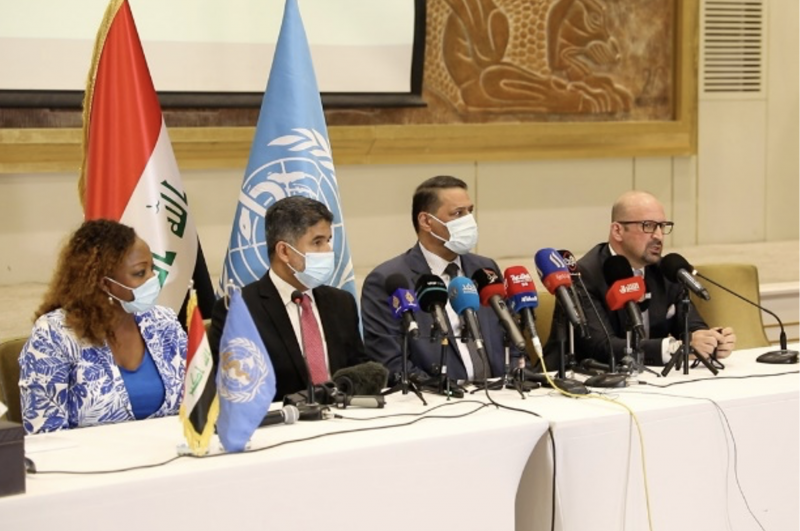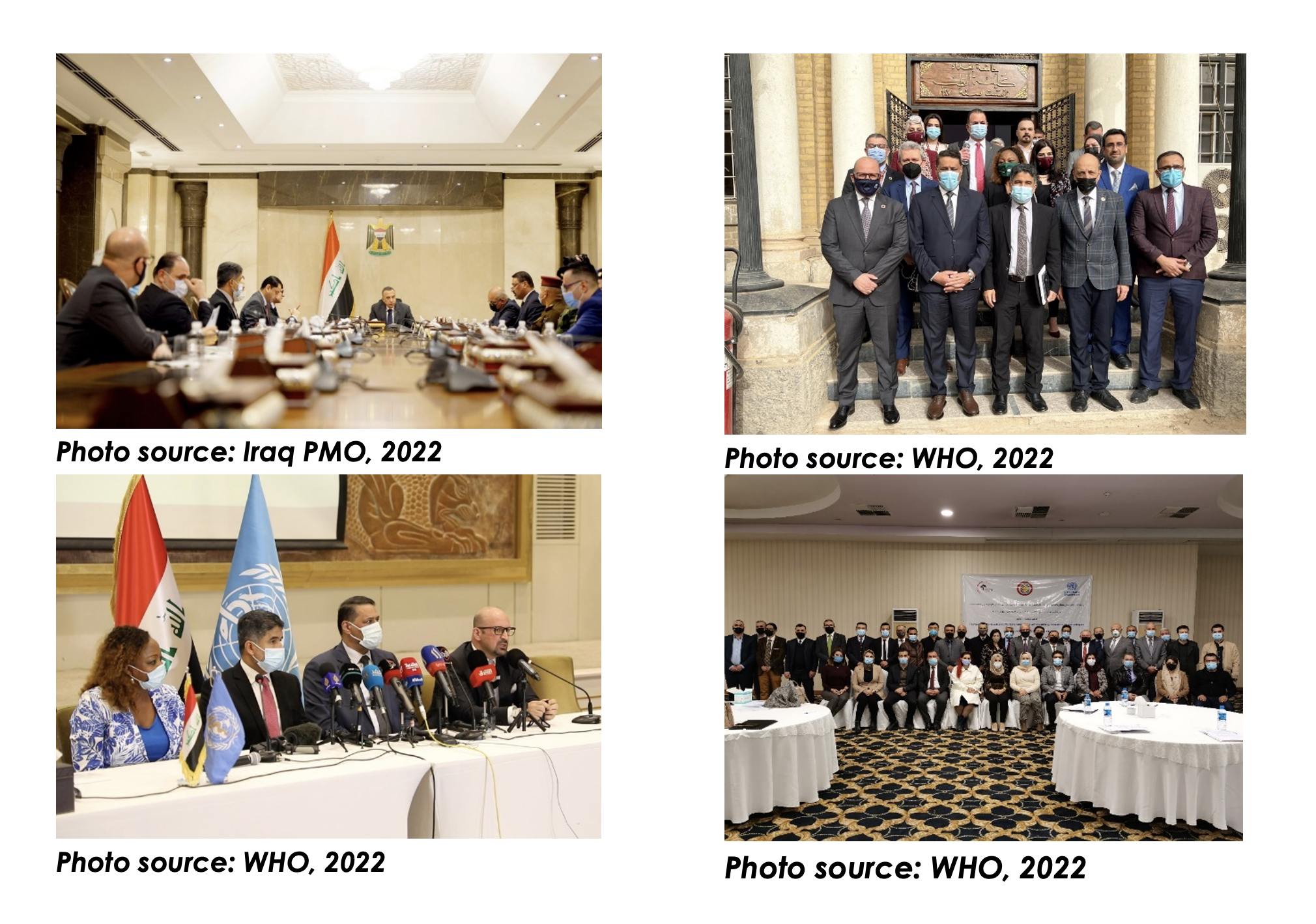
Universal Health and Preparedness Review (UHPR) Pilot in Iraq
WHO, Health System & UHC
April 20, 2022
Eastern Mediterranean Region
Iraq
The health system in Iraq has been exposed to exceptional challenges over the past few decades. The country’s health infrastructure has been considerably damaged and many of the skilled health professionals have left the country leaving behind a population with inadequate access to basic health care services. With the severe and lasting impact of the ongoing COVID-19 pandemic, and in order to review the country’s preparedness capacity to respond to future health emergencies, the government of Iraq officially requested to be among the pilot countries to conduct the Universal Health and Preparedness Review (UHPR) mechanism.
The UHPR is an intergovernmental review mechanism led by Member States with the support of WHO, in which countries voluntarily agree to a regular and transparent peer-to-peer review of their national preparedness capacities. This initiative aims to bring together the relevant stakeholders in the country in a spirit of solidarity and mutual trust to promote more effective national and international cooperation, to strengthen health security in the country.
The UHPR mechanism in Iraq aims to:
- Assess Iraq’s health emergency preparedness capacities and elevate considerations on preparedness to the highest level of government
- Establish and sustain improved levels of cross-sectoral mobilization and dialogue for health emergency preparedness in the country;
- Update the national action plan for health security based on the findings of the UHPR to improve preparedness and response to different health emergencies in Iraq;
- Build trust with the Iraqi government and empower stakeholders beyond ministries of health and beyond government to improve the health situation in Iraq;
- Promote reliable and sustainable domestic resources to implement the national action plan for health security;
- Promote and empower community engagement to build resilient communities;
- Promote peer review, learning and mutual trust; and
- Serve as a framework for disseminating experiences, solutions, and best practices to other Member States.
The UHPR was conducted by a multisectoral national commission headed by the Prime Minister with ministerial representation, and a multisectoral technical working group led by the Ministry of Health. The establishment of the national commission and the technical working group to implement the UHPR was made possible thanks to the trust and strong collaboration and coordination between the WHO Iraq Country Office and the Iraqi MoH. The WHO Regional Office for the Eastern Mediterranean (EMRO)’s active engagement and readily available support to provide guidance and the capacity to engage all UN partners also greatly facilitated the process.
Discussions and data collection in Iraq, as a federal system, took place at the central and governorate levels during December 2021 and February 2022 with visits to Baghdad, Al-Anbar, Basra, Ninewa, Erbil, Duhok and Sulaymaniyah governorates, and field visits to Primary Health Care (PHC) facilities, hospitals and vaccination centres at the central and governorate levels.
The technical working group conducted two simulation exercises at the central level in Baghdad and in Erbil, and conducted meetings and discussions with academia, civil society organizations and main partners serving in Iraq. Several best practices were identified and political commitment at the highest level was obtained to advance health and emergency preparedness through the substantial involvement of local authorities and community organizations in the process.
The review addressed governance and leadership, agile and strong system for emergency preparedness and resources. Among the identified challenges were the volatile political, social, economic and security settings severely affected by a protracted military, political, economic, humanitarian and security crisis. Limited multisectoral and multistakeholder coordination at all levels, varied capacities across the different administrative divisions and governmental sectors and among different geographical locations, and a country/donor focus on humanitarian emergency response rather than on recovery and health security preparedness were also among the identified challenges.
A high-level WHO delegation arrived in Iraq between 6 to 9 March 2022 with the presence of Regional Director, Dr Ahmed Al-Mandhari; Director of Health Security Preparedness in HQ, Dr Stella Chungong; EM Regional Emergency Director, Dr Richard Brennan; EM Health Systems Director, Dr Awad Mataria; EM Regional Manager for Emergency Preparedness and International Health Regulations, Dr Dalia Samhouri and HQ Team Lead for UHPR, Dr Rajesh Sreedharan. The delegation also included the WHO Representative for Iraq, Dr Ahmed Zouiten. The delegation held meetings with the Prime Minister, Minister of Health, Minister of Foreign Affairs, Minister of Finance, Minister of Agriculture, and UN Representatives and participated in a national workshop to officially launch the Iraq UHPR report and its findings. The government is currently working on a road map and a plan of action to response to the identify gaps and recommendations.
Quotes:
“I have seen the progress made towards enhancing the health system’s preparedness for health emergncies in Iraq. I left Baghdad with full confidence in the ability of the political leadership and health professionals to face difficulties and advance the health system in the country.”
Dr Ahmed Al-Mandhari, WHO Regional Director for the Eastern Mediterranean
“This mission is of critical importance as Iraq is one of five countries prioritized to undertake the UHPR globally. Iraq will be sharing lessons learned with all WHO Member States and paving the way for improving the performance of its health system and strengthening its preparedness and response capacities to tackle different public health hazards.”
Dr Ahmed Zouiten, WHO Representative and Head of Mission in Iraq
